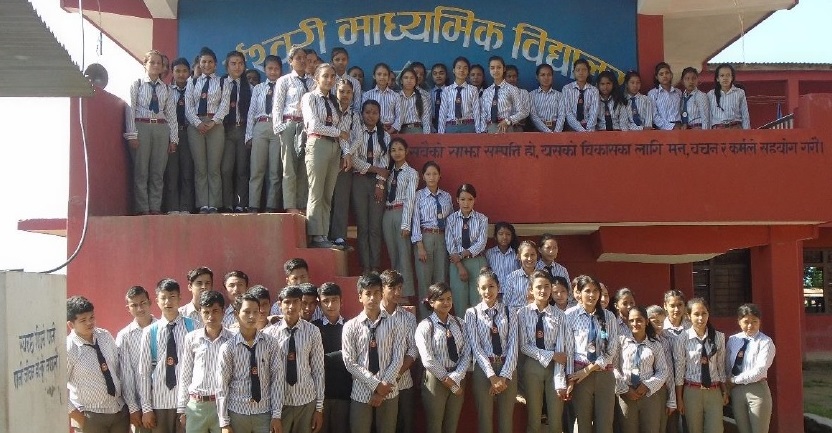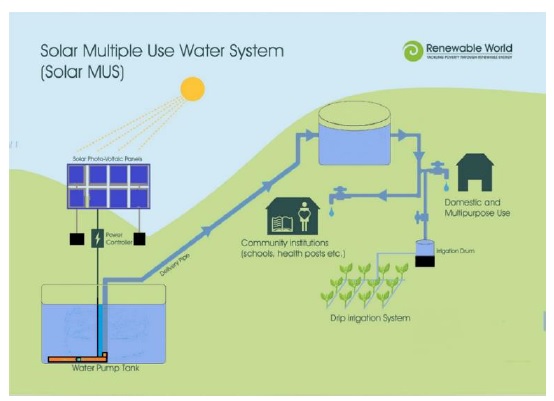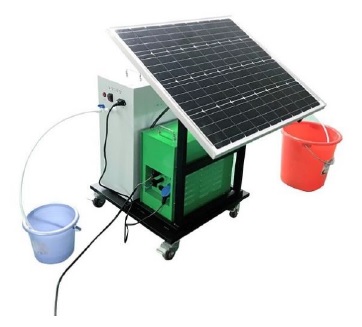March 6, 2021
The TREATS Nepal (Transforming Education through Energy Access and Simple, Sustainable Solutions) in Gulmi District project agreement between Unica Foundation and Renewable World has been signed on 19 January 2021.
Across Nepal girls are kept out of school by lack of water and toilets. According to the Ministry of Education, Nepal is the 16th poorest country in the world and almost one million children are out of school with girls from the poorest families especially affected at secondary school age. Gender disparity in education widens as poverty increases. Water access and inadequate sanitation and hygiene facilities are key obstacles for school attendance. The poverty rate in Gulmi district is 25.6%, about 10% higher than the national average; girls in Gulmi are at high risk of not attending school. According to the article on project outcome of “The Girl Effect, A Neoliberal Instrumentalization of Gender Equality” in 2016, an additional year of secondary education boosts a girl’s future wages between 15 to 25%.
The project area has been selected in collaboration with the government as girls here are at high risk of dropping out of school when transitioning between primary and secondary education due to lack of water and poor school WASH facilities. Gulmi Durbar Rural Municipality is one of the driest rural municipalities in the district, so all ten secondary school in this municipality has been targeted.
TREATS Nepal – “Transforming Education through Energy Access and Simple, Sustainable Solutions in Gulmi District” is a new collaboration of the Unica Foundation with Renewable World to improve access to secondary education for 3,312 vulnerable children (1,753 girls and 1,559 boys), including children with disabilities, through renewable energy powered water provision and accessible, dignified WASH facilities in all ten secondary schools in Gulmi Durbar Rural Municipality, Gulmi District. The project delivery team includes delegates from Renewable Word and their local NGO partner Nawa Prabhat Yuwa Sangh (NPYS). This is a 30-month project starting January 2021, to end in June 2023. This approach combines water provision through solar powered multiple use water lifting and distribution systems (SolarMUS), accessible Water Sanitation and Hygiene (WASH) infrastructure, a pilot of solar powered water filtration systems and education on safe water and good hygiene.
The Unica Foundation is currently collaborating with Renewable World across Surkhet and Achham districts, utilizing SolarMUS to catalyze agricultural improvements for poor, rural communities who live above their water sources. Under our existing collaboration in these districts, primary schools in the communities are connected to the SolarMUS as a part of beneficiaries group. Under TREATS, the approach is a slightly different model, putting secondary schools in Gulmi at the heart of the project, whilst also connecting their surrounding community, to ensure water access for all. This shift in focus puts secondary school aged girls at the center of the change, giving these children a greater chance of school enrollment, which is all through provisioning water security through sustainable alternative energy in order to support for education. Amongst all project components, Unica Foundation has more focused on new pilot technology: a solar powered water purification unit which as pilot project only be installed in two schools. However, Renewable World has proposed to install water filters in all schools to ensure the water is potable. Finally, to ensure the new water lifting systems, solar powered filters and other sanitation and hygiene infrastructure are used effectively and safely, we will facilitate the delivery of a youth-led awareness campaign. Through this campaign, directly 3,312 students and indirectly 14,904 family members will have improved hygiene and sanitation knowledge and practices.
The project’s overall objective is to contribute to the achievement of SDG 4 in Nepal – ‘Ensure inclusive and equitable quality education’. Progress against the project objectives will be measured by three principal outcome indicators:
- % increase in attendance in all 10 targeted schools (disaggregated by sex, age and disability).
- % of people, including 14,904 community members and 3,312 secondary school students, with improved hygiene and sanitation practices (disaggregated by sex, age and disability)
- % reduction in the incidence of water-borne diseases reported by households and schools in the target communities












